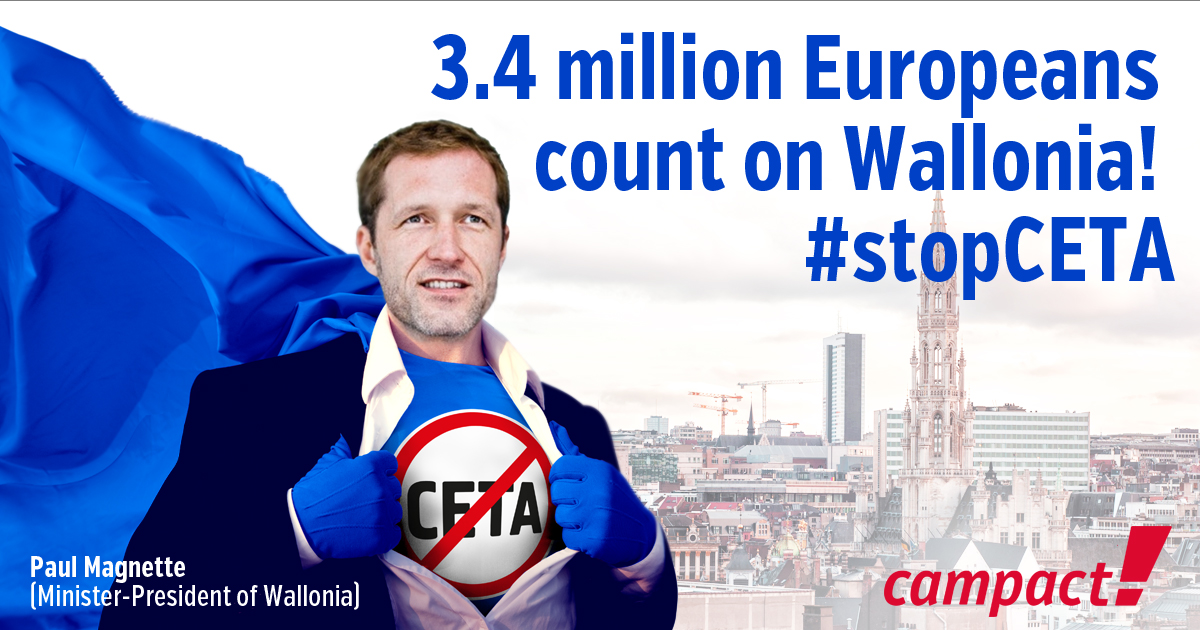Belgian local parliament votes to block Canada trade deal
EU Observer | 13 October 2016
Belgian local parliament votes to block Canada trade deal
By Eric Maurice
Members of the parliament of the Federation Wallonia-Brussels voted a resolution on Wednesday (12 October) that could block the signing of the EU-Canada free trade deal, Ceta.
The deputies, who represent Belgium’s French-speaking community, voted by 68 votes against 23 a text calling the region’s president not to authorise the Belgian government to sign the deal.
They ask that negotiations with Canada are open again in a "transparent, democratic and inclusive" way.
Under Belgian law, the federal government needs approval from the country’s seven entities - regions and linguistic communities - to sign international agreements.
Ceta was finalised in February this year after almost seen years of negotiations.
EU and Canadian leaders hope to sign it at the end of this month when Canada’s prime minister Justin Trudeau comes to Brussels.
EU trade ministers will first meet on 18 October to decide whether to sign it or not. Belgium could be outvoted if ministers cannot find unanimity and organise a vote with a qualified majority. But an EU source told EUobserver that holding a vote on the issue would be politically difficult.
The parliament’s resolution is not binding, and the president of the Federation Wallonia-Brussels, Rudy Demotte, could decide not to block Ceta and authorise the federal prime minister Charles Michel to sign the deal.
The Belgian federal parliament and the Dutch-speaking Flanders region support Ceta, but the French-speaking assembly could vote against it.
On Friday, the parliament of the French-speaking Wallonia region will also vote on a resolution calling the federal prime minister Charles Michel not to sign Ceta. It already adopted an anti-Ceta resolution in April.
The Brussels-Capital region could also vote against the deal.
The votes come as prime minister Michel is already weakened by a deadlock in his coalition government over next year’s budget. Opposition on Ceta from several parliaments would put him in a difficult position, domestically as well as within the EU.






